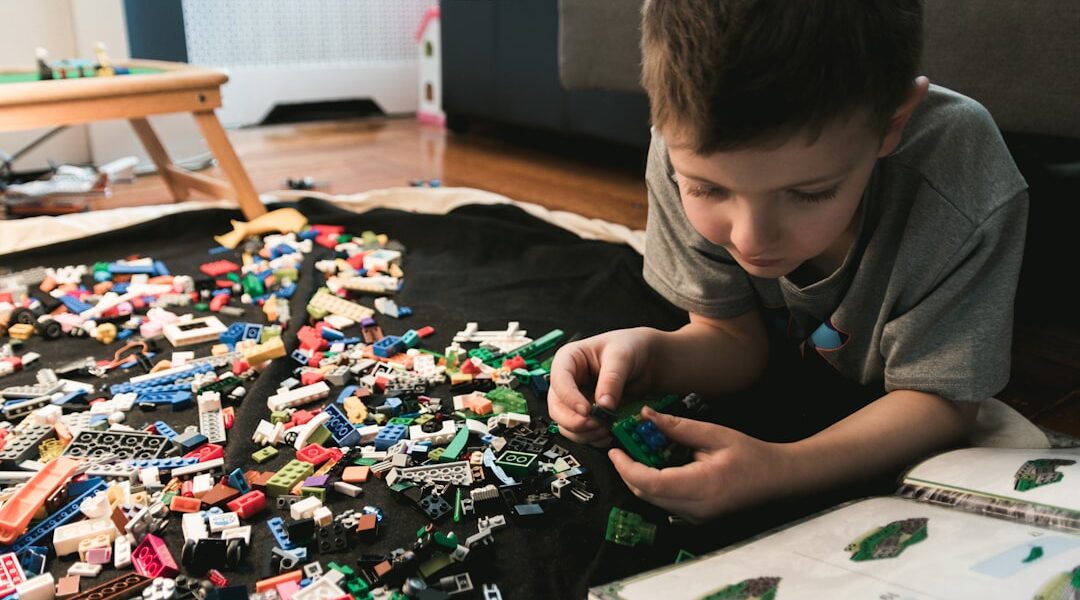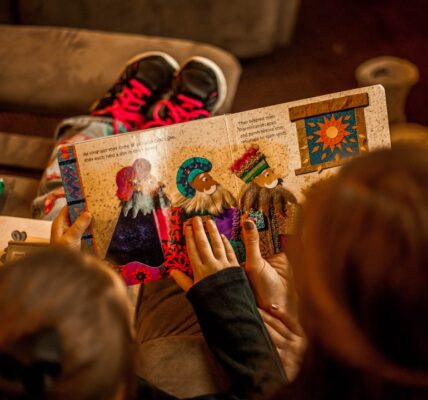Early learning is fundamental to a child’s overall development. Scientific studies have demonstrated that the initial five years of life are the most critical period for brain development. During this time, the brain undergoes rapid growth and forms neural connections that will influence future learning and behavior patterns.
Consequently, providing high-quality early learning experiences is vital for establishing a robust foundation for children’s future academic and life success. Early learning also facilitates the development of essential skills, including language acquisition, social interaction, problem-solving abilities, and emotional regulation. Participation in early learning activities better prepares children for academic and social success as they mature.
Furthermore, early learning experiences can have enduring effects on a child’s cognitive development, potentially leading to enhanced academic performance and higher educational attainment in later years. In summary, early learning is essential for a child’s comprehensive development and lays the groundwork for future achievements. By ensuring children have access to quality early learning opportunities, we can help them construct a solid foundation for their ongoing learning and development.
Key Takeaways
- Early learning is crucial for a child’s overall development and future success.
- A stimulating learning environment can enhance a child’s curiosity and creativity.
- Play-based learning allows children to explore, experiment, and problem-solve in a natural and enjoyable way.
- Fostering social and emotional development helps children build healthy relationships and manage their emotions.
- Language and literacy activities are essential for developing communication skills and a love for reading and writing.
- Promoting cognitive development through activities that challenge and stimulate the mind is important for a child’s intellectual growth.
- Parental involvement and support is key to a child’s early learning and development.
Creating a Stimulating Learning Environment
Fostering Exploration and Discovery
A stimulating learning environment is crucial for promoting early learning and development in young children. This environment should be rich in opportunities for exploration, discovery, and hands-on learning experiences. Providing children with a variety of age-appropriate toys, books, and materials can encourage creativity, problem-solving, and critical thinking skills.
Creating a Safe and Nurturing Space
In addition to providing stimulating materials, it is essential to create a safe and nurturing environment where children feel comfortable and supported. Establishing predictable routines, setting clear expectations, and providing positive reinforcement for children’s efforts and achievements can help achieve this. A stimulating learning environment should also be inclusive and culturally responsive, celebrating diversity and promoting a sense of belonging for all children.
Setting the Stage for Future Success
In summary, creating a stimulating learning environment is vital for promoting early learning and development in young children. By providing children with a rich and supportive environment, we can help them develop essential skills and abilities that will set the stage for their future success.
Encouraging Play-Based Learning

Play-based learning is an effective approach to early childhood education that promotes children’s overall development. Through play, children have the opportunity to explore, experiment, and make sense of the world around them. Play-based learning allows children to develop essential skills such as problem-solving, creativity, and social interaction in a natural and enjoyable way.
Encouraging play-based learning can be achieved by providing children with open-ended materials and opportunities for imaginative play. This can include blocks, art supplies, dramatic play props, and outdoor play equipment that allow children to engage in hands-on, interactive experiences. It is also important to provide ample time for unstructured play, allowing children to follow their own interests and take the lead in their learning.
In conclusion, play-based learning is an effective approach to early childhood education that promotes children’s overall development. By encouraging play-based learning, we can help children develop essential skills and abilities in a natural and enjoyable way.
Fostering Social and Emotional Development
| Age Group | Social Development | Emotional Development |
|---|---|---|
| Infants | Learning to interact with caregivers | Developing trust and security |
| Toddlers | Engaging in parallel play | Expressing emotions through words |
| Preschoolers | Playing cooperatively with peers | Identifying and managing emotions |
| School-age children | Forming friendships and social groups | Developing empathy and resilience |
Fostering social and emotional development is essential for promoting healthy relationships and overall well-being in young children. Social and emotional skills are crucial for children’s success in school and in life, as they help children build positive relationships, manage their emotions, and navigate social situations effectively. To foster social and emotional development, it is important to provide children with opportunities to engage in cooperative play, problem-solving activities, and group discussions.
This can help children develop empathy, communication skills, and conflict resolution strategies. Additionally, it is important to teach children about emotions and provide them with strategies for managing their feelings in a healthy way. In summary, fostering social and emotional development is essential for promoting healthy relationships and overall well-being in young children.
By providing children with opportunities to develop social and emotional skills, we can help them build a strong foundation for their future success.
Incorporating Language and Literacy Activities
Incorporating language and literacy activities is essential for promoting early literacy skills in young children. Language and literacy skills are crucial for children’s success in school and in life, as they form the foundation for reading, writing, and communication. By incorporating language and literacy activities into daily routines, we can help children develop essential skills such as vocabulary, phonemic awareness, and comprehension.
Language and literacy activities can include reading books aloud, engaging in conversations with children, singing songs, and playing word games. These activities provide children with opportunities to develop their language skills while also fostering a love for reading and learning. It is also important to provide children with access to a variety of age-appropriate books and materials that reflect their interests and experiences.
In conclusion, incorporating language and literacy activities is essential for promoting early literacy skills in young children. By providing children with opportunities to develop their language skills, we can help them build a strong foundation for their future success in reading and writing.
Promoting Cognitive Development

Why Cognitive Development Matters
Cognitive development is vital for a child’s future success. It lays the foundation for their ability to think critically, solve problems, and remember important information. By promoting cognitive development, we can help children develop the skills they need to excel in school and beyond.
Ways to Promote Cognitive Development
Promoting cognitive development can be achieved by providing children with opportunities to engage in hands-on activities that challenge their thinking skills. This can include puzzles, sorting activities, matching games, and science experiments that encourage children to explore, experiment, and make connections. It is also important to provide children with opportunities to ask questions, make predictions, and engage in discussions that promote higher-order thinking skills.
The Benefits of Promoting Cognitive Development
In summary, promoting cognitive development is essential for helping young children build essential thinking skills that will set the stage for their future success. By providing children with opportunities to engage in hands-on activities that challenge their thinking skills, we can help them develop the cognitive abilities they need to succeed in school and beyond.
Supporting Parental Involvement
Supporting parental involvement is essential for promoting early learning and development in young children. Parents play a crucial role in their child’s education and overall well-being. By supporting parental involvement, we can help parents become active partners in their child’s learning journey.
Supporting parental involvement can be achieved by providing parents with resources, information, and opportunities to engage in their child’s education. This can include workshops, parent-teacher conferences, home learning activities, and regular communication about their child’s progress. It is also important to create a welcoming and inclusive environment that encourages parents to be involved in their child’s education.
In conclusion, supporting parental involvement is essential for promoting early learning and development in young children. By providing parents with resources and opportunities to engage in their child’s education, we can help them become active partners in their child’s learning journey.
If you’re interested in learning more about early learning strategies, you may want to check out the article “10 Fun and Educational Activities for Toddlers” on Baby and Mums. This article provides helpful tips and ideas for engaging toddlers in educational activities that can support their early learning and development. It’s a great resource for parents and caregivers looking for creative ways to promote learning in young children.
FAQs
What are early learning strategies?
Early learning strategies are methods and approaches used to support the development of young children’s cognitive, social, emotional, and physical skills. These strategies are designed to provide children with a strong foundation for future learning and success.
Why are early learning strategies important?
Early learning strategies are important because they help children build essential skills and abilities during their formative years. Research has shown that early experiences have a significant impact on a child’s brain development and future academic and social success.
What are some examples of early learning strategies?
Examples of early learning strategies include interactive and hands-on activities, play-based learning, reading and storytelling, music and movement activities, and intentional teaching of social and emotional skills. These strategies are often implemented in early childhood education settings such as preschools and daycare centers.
How do early learning strategies benefit children?
Early learning strategies benefit children by promoting their cognitive development, language and communication skills, social and emotional competence, and physical well-being. These strategies also help children develop a love for learning and build a strong foundation for future academic success.
What role do parents and caregivers play in early learning strategies?
Parents and caregivers play a crucial role in implementing early learning strategies at home and in everyday interactions with young children. They can support their child’s learning through activities such as reading together, engaging in imaginative play, and providing a nurturing and stimulating environment.




